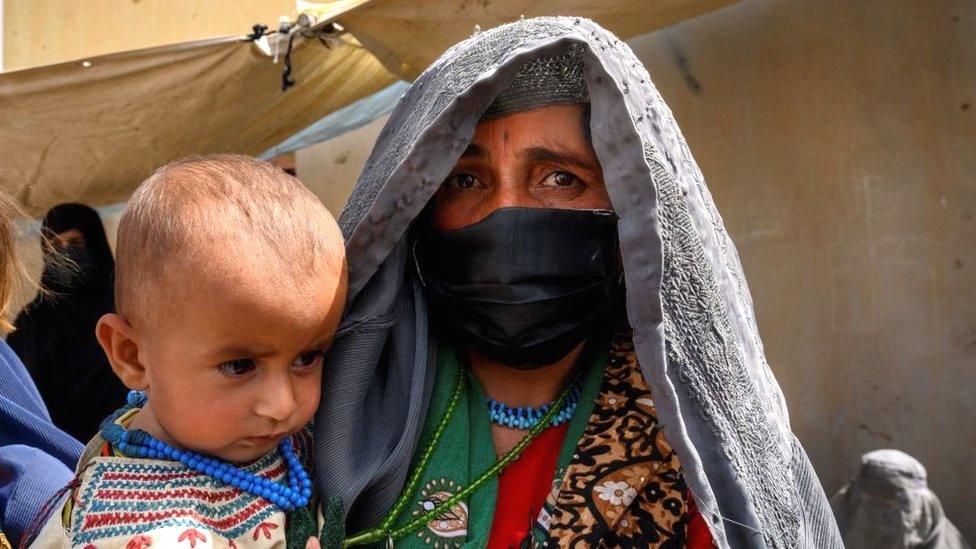A woman tries to flee the Taliban: 'We lost everything again'
- Published
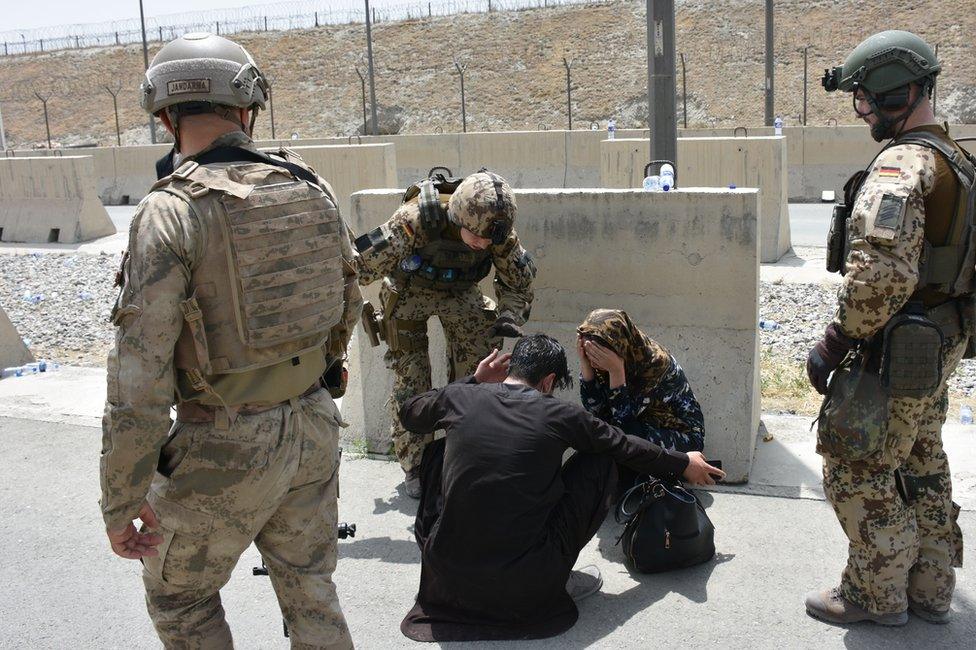
A woman buries her head in her hands at the airport as thousands try to flee
Last Sunday, as Afghanistan fell to the Taliban, a woman in Kabul and her teenage son packed their lives into two leather suitcases and set out for the airport.
In the suitcases were jewellery, watches, cash, hard drives and work papers, and what clothes they could fit, including winter clothes, in case they ended up somewhere cold.
The woman, D, didn't live in Kabul. She had already been running for a week. Her journey began when she fled the border city she called home as Taliban fighters closed in. As an outspoken women's rights activist, she didn't feel safe there anymore.
In Kabul, in a dress, headscarf, mask and gloves, D tried to find a taxi to take her and her son to the airport. Eventually she gave up and they walked for an hour in the bristling heat, carrying their suitcases.
The airport was a maelstrom of chaos. Men, women and children were scaling the airport walls, milling on the tarmac, squatting around the taxiways, sitting atop parked planes. Young men were clinging to departing US Air Force planes in a doomed bid for freedom.
Dusk fell on the beleaguered city, and D and her son waited patiently for a flight. Then they gave up. As they stepped back out into the hot night, they encountered a rush of people towards the airport. They were engulfed by the crowd, and someone among them snatched their bags.
"We helplessly saw them being stolen in front of our eyes," D told me down the phone from Kabul, her voice trembling.
"They just ran away with our bags," she said. "We lost everything again."
She broke into sobs.
"Things have been stolen from me for as long as I remember - my childhood, my youth," she said. "My work and my family saved me."
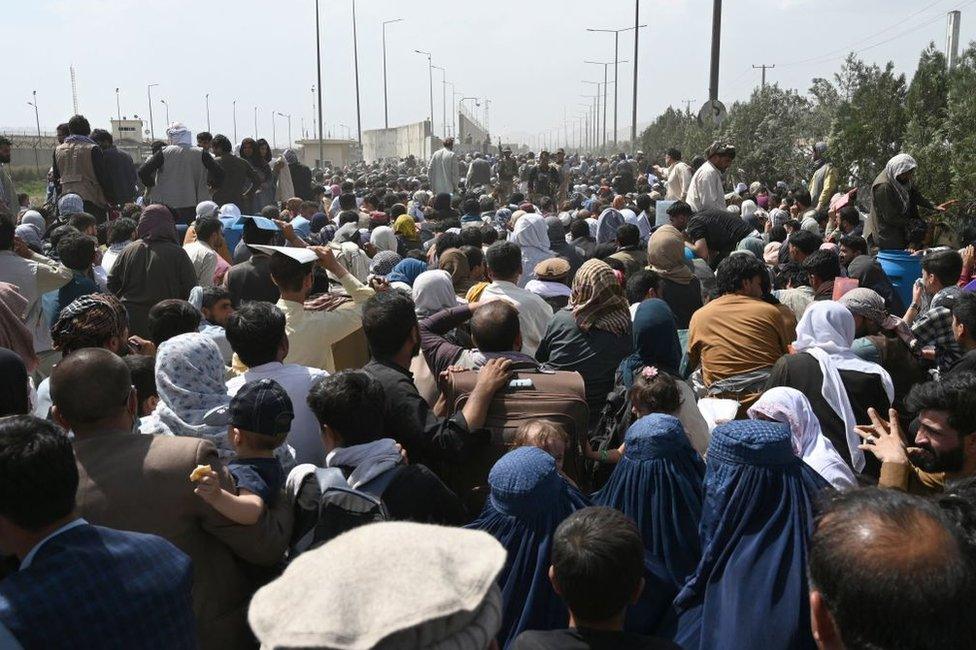
With huge crowds gathered, many have failed to even get close to the airport
For close to two decades, D has run a women's rights group in Afghanistan, teaching girls to read and providing women with shelter, counselling and training for jobs.
Now she feared retribution. Some of the fathers, husbands, brothers, uncles, and fiancés of the women she helped went to prison. In their march towards Kabul, the Taliban freed inmates from several prisons, and some of those men now could be roaming free.
"I am sure they came looking for me," D said. "I don't know what would have happened if I didn't flee in time."
D and her son fled her hometown days before the Taliban arrived. They took separate flights to Kabul, and her husband travelled later by road - a two day journey. After she reached the capital, D spoke to the guard at their building back home. He told her some men had come to the apartment.
"The first night after invasion they came looking for us," she said. "They knocked on the door. The guard refused to open."
The guard told her he heard the men through the door, discussing plans to shoot him and search the apartment, but they left instead. The next morning, the men came again, climbed the wall, and entered the house. They peppered him with questions: Where were D and her family? Where were their cars?
"Since then, every night they have come looking for me. Every night. They have ransacked our home," D said. "I don't know who they were. They wore scarves. I heard they were accompanied by local Taliban who stood behind."
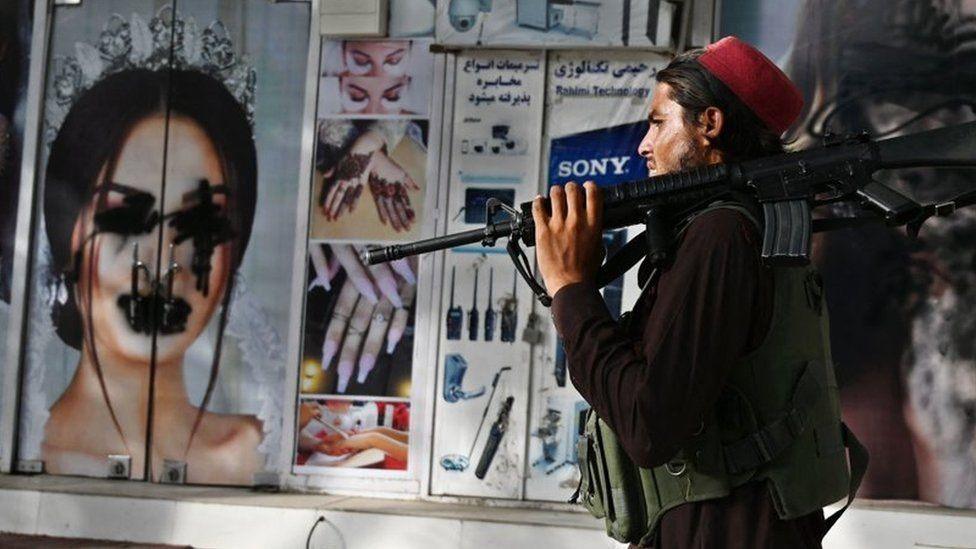
The Taliban took control of Kabul with barely any resistance
D's life is one of immense courage in the face of violence. During the war between the Soviet forces and the mujahedeen, she survived rocket attacks on her school. Her headmistress was murdered for refusing to wear a headscarf, she said. Another teacher was killed for alleged communist sympathies.
After school she moved to Kabul. During the civil war of the 1990s, she got married, finished her studies, had children, and kept moving homes as the war wrecked neighbourhood after neighbourhood.
"It was like we were leading a life of picnickers," she said. "Every time the fighting arrived in my neighbourhood, we would just pick up our bedding and move."
When the Taliban seized control of the city in 1996, D lost her job. She returned to her looted apartment in Kabul and, defying a Taliban ban, began teaching girls from there. In the apartment at least, there was an oven on hand to burn the teaching materials if the need arose.
In 2001, a new war started, but the ousting of the Taliban allowed her to teach again at least. And she went on to do much more for Afghanistan's women and girls. It was never easy, she said.
"I have struggled all my life. I have never really enjoyed it. Even when you are working for women in Afghanistan, you are making enemies and becoming targets of many men."
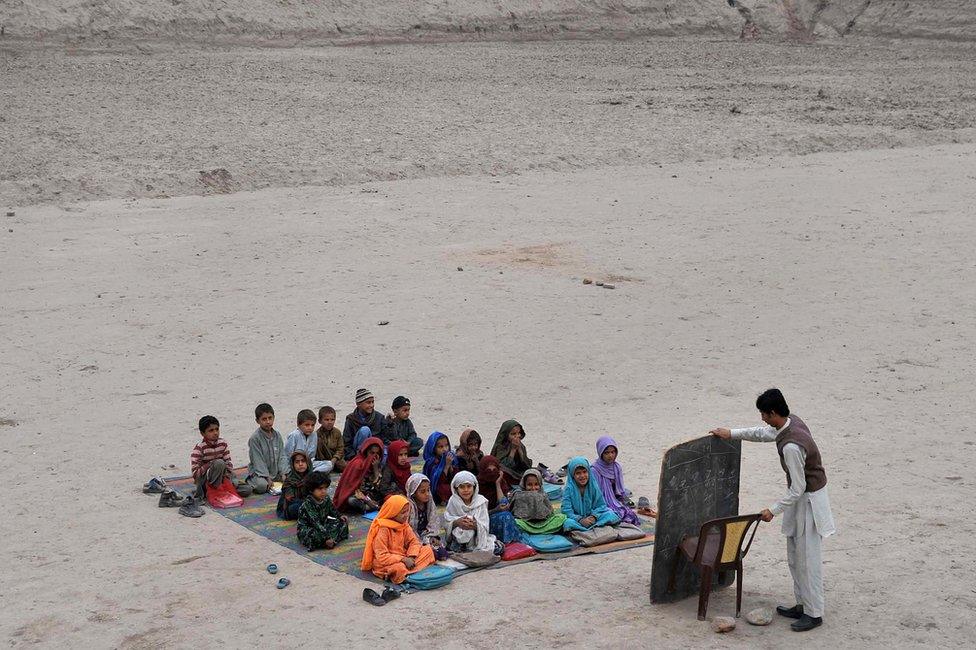
Girls have been taught in schools alongside boys since the Taliban was ousted in 2001. Now many fear for girls' education.
As the Taliban approached her hometown two weeks ago, D feared she would become a target again. When her three sons were young, the family received threats to kidnap them because of her work, she said. Two of her sons were sent abroad while the US kept the Taliban at bay. The eldest hasn't seen his father in a decade; the youngest in three years.
Last Sunday, as Kabul fell, the three family members left in Afghanistan hunkered down once again in fear and anxiety.
"I am tired mum," D's son told her. "How long should we run and hide because of your work? Why do we have to pay the price for what you do?"
D was now sobbing inconsolably.
"My work and family were my only happiness," she said. "They have stolen my happiness."
As the week ended, some hope arrived. D got word that there might be seats on a plane for her, her husband, and her son - either to the US or Europe.
They went back to the airport and waited again - on the run for the third time in three weeks. This time they took just three small bags containing their valuables. "There's really nothing else to carry," D told me, over the phone from the airport. "We will buy clothes when I reach wherever they take us."
I asked her if her son was feeling better.
"Not really," she said. "Running away was never his choice. It's always been a question of survival. It is the price my family has paid for my work."
When she woke him on Friday to tell him they were going back to the airport he said, "I want to sleep and I want to be free."
This was our last conversation, on Friday. D was in limbo, like thousands of others. Destination unknown. Life precarious. Jolted suddenly into a different existence.
"I didn't expect this to happen and so fast," she said. "We had just finished painting the house. We were hoping to enjoy a peaceful life next year."
Related topics
- Published20 August 2021
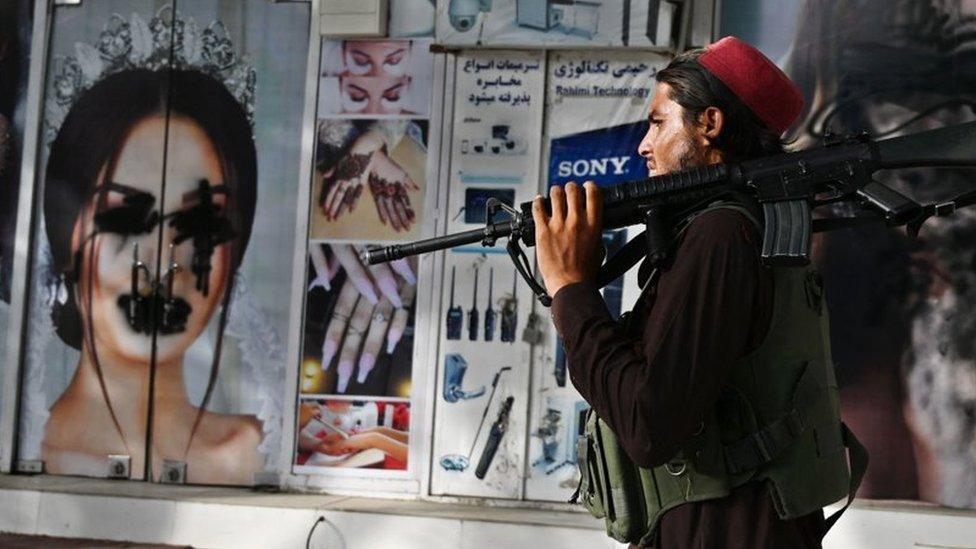
- Published19 August 2021
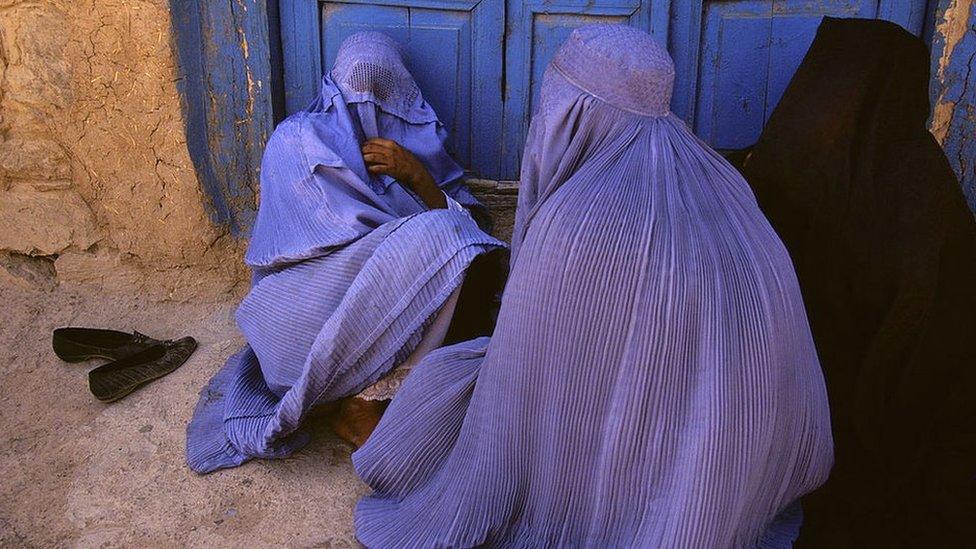
- Published17 August 2021
